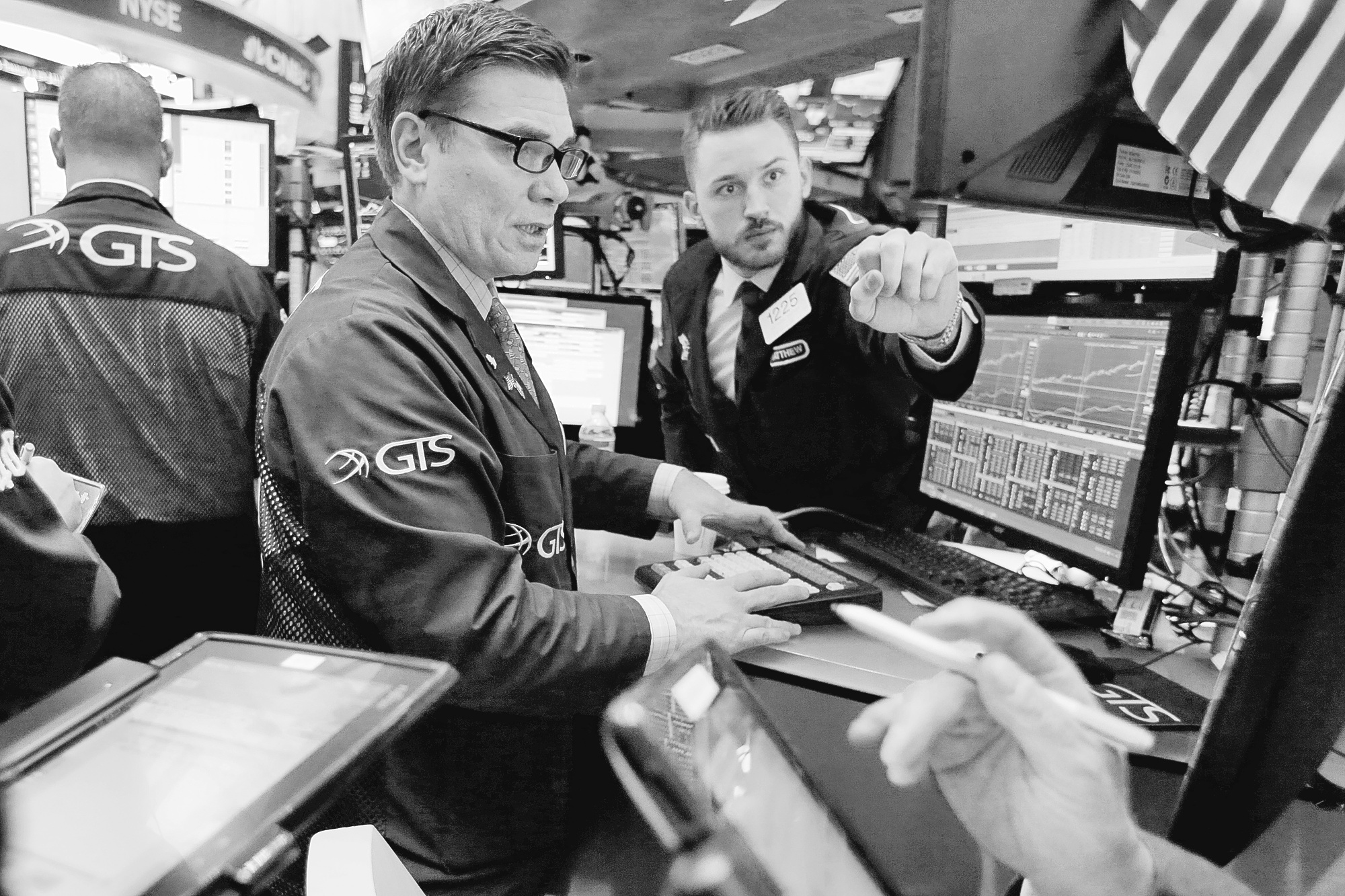
By MARLEY JAY
AP Markets Writer
NEW YORK (AP) — Technology companies climbed Thursday as stocks rose for the fifth day in a row. They have now recovered about half their losses during the market’s dramatic plunge earlier this month.
Tech bellwether Cisco Systems jumped after it posted strong quarterly results and announced a big stock repurchase, while Apple rose after an analyst said sales of the iPhone X in China are improving. Most other parts of the market climbed as well, with notable gains for industrial companies and household goods makers. Energy companies continued to struggle.
It took stocks just nine days to skid from record highs into a 10 percent drop, known on Wall Street as a “correction.” Concerns about rising inflation contributed to the fall, but even though investors have seen more signs of inflation in the last few days, major indexes are on a five-day winning streak and have recouped about half of their recent losses.
“The market should never have gone down 10.5 percent,” said Rick Rieder, BlackRock’s chief investment officer of global fixed income. Rieder noted that inflation remains low, and the newly-passed government budget will push interest rates higher because it creates so much new debt.
After a brief dip late in the morning, the Standard & Poor’s 500 index rallied and rose 32.57 points, or 1.2 percent, to 2,731.20. The Dow Jones industrial average rose 306.88 points, or 1.2 percent, to 25,200.37. The Nasdaq composite climbed 112.81 points, or 1.6 percent, to 7,256.43.
The Russell 2000 index of smaller companies rose 15.10 points, or 1 percent, to 1,537.20.
Cisco reported a bigger profit and better sales than analysts expected, and said it will buy back another $25 billion of its own stock. It climbed $1.99, or 4.7 percent, to $44.08. Apple rose $5.62, or 3.4 percent, to $172.99 after an analyst for Morgan Stanley said the iPhone X is gaining market share in China, a critical market for Apple’s products. Microsoft jumped $1.85, or 2 percent, to $92.66.
Among industrial companies, Boeing jumped $11.61, or 3.4 percent, to $356.46 and elevator and jet engine maker United Technologies gained $4, or 3.2 percent, to $130.
The market’s recent moves might look familiar because investors have been “buying on the dips” for years. The last significant drop in the market prior to this month came in June 2016, after the United Kingdom voted to leave the European Union. The S&P 500 fell more than 5 percent in just two days, and gained it back almost as quickly.
Trading volumes have returned to more typical levels this week. They spiked in the first two weeks of February as stock indexes took some wild swings.
In economic news, the Labor Department said U.S. wholesale prices rose 0.4 percent in January, the biggest increase since November. The main reason for the increase was a big jump in energy prices, and those have dropped recently. U.S. crude oil peaked at $66 a barrel in late January and is trading around $60 a barrel now.
Bond prices were little changed. The yield on the 10-year Treasury note remained at 2.91 percent, its highest level in four years.
Rieder, of BlackRock, said bond prices hardly moved during the recent downturn because investors are realizing that the new federal budget agreement, which puts the country on track for $1 trillion annual deficits over the next few years, will keep bond prices lower and interest rates higher.
“So much Treasury debt is going to have to come to the market that people are starting to do the calculus of ‘this is going to push interest rates higher,'” he said.
U.S. crude oil turned higher in afternoon trading after a slump in the morning. It rose 74 cents, or 1.2 percent, to $61.34 a barrel in New York. Brent crude, used to price international oils, lost 3 cents to $64.33 a barrel in London.
Wholesale gasoline picked up 2 cents to $1.74 a gallon. Heating oil rose 1 cent to $1.89 a gallon. Natural gas slipped 1 cent to $2.58 per 1,000 cubic feet.
Still, energy companies mostly fell. They’ve done far worse than any other part of the market lately: of the 32 energy companies in the S&P 500, only six are currently higher than they were at the start of the year.
Gold lost $2.70 to $1,355.30 an ounce. Silver fell 8 cents to $16.80 an ounce. Copper added 1 cent to $3.25 a pound.
The dollar slid to 106.27 yen from 107.09 yen. The euro rose to $1.2506 from $1.2435.
France’s CAC 40 climbed 1.1 percent, led by a big gain from Airbus. Germany’s DAX added 0.1 percent and Britain’s FTSE 100 rose 0.3 percent. Japan’s Nikkei 225 rose 1.5 percent and in Hong Kong the Hang Seng advanced 2 percent in a half-day trading session. Markets in mainland China, South Korea and Taiwan were closed for the lunar new year holiday.
















